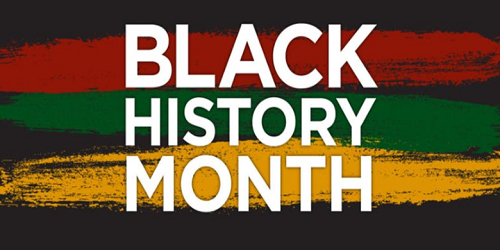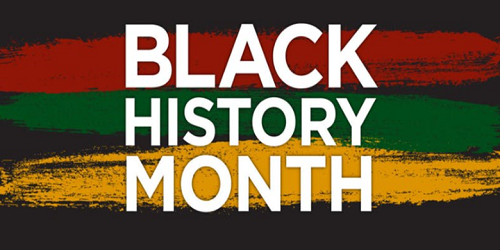As Black History Month UK draws to a close, Pat - one of our D&I Committee members based in our Manchester HQ office - shares some fascinating insights into the history and contribution of black people in the city where Amoria Bond was established in 2006. Pat takes us on a brief tour of some of the key events in Black British history, from the slave trade and partition of Africa to the impact of the world wars. Huge thanks to Pat for the time she has put into producing this article for Black History Month 2021 to share with our colleagues and network.

Celebrating Black History in Manchester
Manchester is diverse. It is from this diverse nature that, every month, the city is flavoured with a variety of celebrations, be it Diwali, the Chinese New Year Festival, Pride Weekend, or Black History Month. In October, Manchester joined the rest of Britain in celebrating black history, culture and heritage. This year's theme was 'Proud to Be' - inviting black people of all ages and walks of life to share their stories to inspire and raise awareness of the contribution of black people in Britain throughout history and, indeed, today.
The Origins
'Am I not a man and a brother?'
Black people have lived in and contributed to the United Kingdom since at least the 16th century, when the UK's slave trade began. The exact population of black people in Manchester during this period is not known. However, evidence recorded in Parish Registers and burial sites has been used to estimate the number of black people across the UK in the 1700s was around 10,000.
The earliest recorded black person living in Oldham was Juba Thomas Royton, who was baptised on June 2nd 1761 and lived and worked as a slave at Royton Hall for wealthy linen merchant Thomas Percival'. It was unusual for slaves to be permitted to retain their African names - just one of many injustices endured.
Eleven thousand people (about 20% of the population) in Manchester signed the 1787 petition to abolish the slave trade. Still, it was another 30 long years until the British slave trade was finally abolished in 1807.
Fast forward to 1880
The Partition of Africa
The partition of Africa, which was also known as the Scramble for Africa, saw the occupation and colonisation of most of Africa by European countries, which began around 1880. The official assembly on the partition was held during The Berlin Conference of 1884-1885. The German Chancellor, Otto von Bismarck, called all European countries to discuss land ownership in Africa to avoid a war among European nations over African territories and ensure that occupying European countries delivered both trade and 'civilisation' in the form of Christianity. By 1914, 90% of Africa had been claimed by seven European countries. Africa was not the only continent that Europe colonised - Asia too went through a similar experience.
When the World Wars began, European countries recruited soldiers from their colonies to fight for them and secure victory. After the Second World War, Britain enacted the British Nationality Act (1948), giving citizens of the commonwealth free entry into Britain to help rebuild the country. The United Kingdom's diverse and multicultural population was born, with immigrants from across the commonwealth countries of South Asia, Africa and the West Indies.
The Current Situation
Proud to be:
When black peoples' stories are told, sadly, they are often tales of adversity. This year's Official Black History Month Magazine UK theme - Proud to Be - aims to change this. It has encouraged organisations and individuals to proactively celebrate the "achievements and contributions that black people make to the UK – from the black people working on the Covid-19 frontline hospitals, care homes, schools, supermarkets and warehouses, to the children and young people leading the fight for equality in the classroom, to the household names using their platforms to push for change".
As a response, Greater Manchester's theatres, libraries and open spaces have hosted performances and events to showcase black heritage, history, and culture. Here at Amoria Bond, the company is celebrating British black heritage and culture because it speaks to the heart of the company's values and purpose of Progressing Lives Everywhere. Our Diversity and Inclusion Advocates led a range of activities that sought to inspire, inform and celebrate the contribution of Black people in the UK and the world at large. From showcasing the stories of some of the unsung heroes of black British history through our SaleScreens to curating an inspiring list of books (made free to employees through the Amoria Bond Book Club), podcasts and ted-talks, and even organising a live-stream DJ event celebrating music of black origin. Find out more and access all our recommendations and replays of the fantastic live sets here https://www.amoriabond.com/en/insights/blog/how-we-celebrate-black-history-month-at-amoria-bond-375/.
In conclusion
For me, Manchester really is the Best Place to Live in, and Amoria Bond is the very Best Company to work for.
Source Material
https://www.blackpast.org/global-african-history/partition-africa/
geographies-of-diversity-in-manchester.pdf
https://www.manchestereveningnews.co.uk/whats-on/arts-culture-news/black-history-month-2021-events-21767532
https://www.blackhistorymonth.org.uk/listings/region/north-west/manchester/
http://www.historymatters.group.shef.ac.uk/unburying-history-slavery-manchester/
https://www.statista.com/statistics/270386/ethnicity-in-the-united-kingdom/





